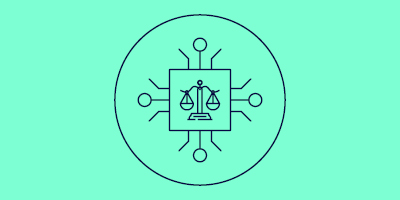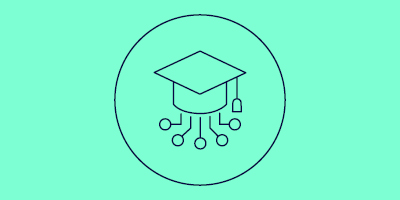Intelligent content
About this trend
Recent and ongoing developments in artificial intelligence have propelled content and textbooks into a new space. The Innovating Pedagogy report talks about intelligent textbooks. In the L&D space, it’s more useful to think of this trend in terms of intelligent content. Intelligent content is much ‘smarter’ than anything that has gone before. It enables personalised, adaptive learning, with content adjusting in real time to meet the needs of the learner.
Powered by AI, intelligent content continually adapts, providing a very different learning experience. It hones in on what learners need to know, so that learners aren’t presented with a whole chunk of learning, some of which they already know or is irrelevant to their needs, but they need to work through anyway. Intelligent content uses data such as learner behaviour – how long a learner spends on a page, where comprehension is easy or difficult etc. It maps this against other data, such as a learner’s existing skills competency, their job role and task orientation to create learning pathways.
Intelligent content is a big move away from the passive consumption of content. Instead of just reading content, it is an interactive process. Intelligent content provides prompts and can ask readers questions to ascertain their level of understanding and provide a deeper learning experience. This helps learners generate knowledge and ideas.
Having this level of really targeted, adaptive learning makes learning much more effective and efficient. It enhances skill development and learner satisfaction. Learners can access the learning they need and then use it do their job better, which is a plus for colleagues, line managers and organisations, as well as the learner..
The expert view
Tom McDowall, Chair of The Learning Network and freelance L&D professional

For me, it’s about moving away from the model where people read from page one and have to know everything about a topic. It’s about the ability for people to quickly get to the information that is relevant to them and allows them to perform, rather than trying to remember as much as possible. It shifts the focus from learning as the desired outcome.
The goal of L&D is not education and learning – it’s performance. It’s about people getting better at the task they are trying to complete. This has always been challenging in the textbook space, but intelligent content goes beyond search. If someone is coming to this in an LMS, for example, then the LMS knows what your job role is and the tasks involved and it feeds you content. This reduces the friction of getting to what you need. It ceases to be a static lift and shift of content, becoming a resource and a guide instead. It can lead people to potential issues they weren’t thinking about because people don’t always know what they don’t know.
This takes some of the workload off the shoulders of L&D, but there’s a lot of nervousness in L&D about it because of the idea of replacement. If this stuff can be done automatically, why do you need us? Me?
There are people on the bleeding edge of technology who are getting excited about this and embracing it (field engineers, for example) but step one is getting over the fear element. There are more people in the industry in that position – fearful – than in the embracing and running with it position.
Top tips:
- The biggest thing is to think more short term - think in sprints
- Think ‘What can I deliver?’ Be brave and experimental
- Try, sometimes fail and get rid of things.
- The reason we exist in a business is to support performance, not to drive learning as an outcome. This technology cuts down on that traditional education mindset.
The next step in this development is intelligent textbooks. They are often multimodal, making the learning much more interactive, immediate and visual. This makes them less like a book and much more engaging for learners.
Professor Agnes Kukulska-Hulme
Institute of Educational Technology, The Open University
Resources:
- The return of intelligent textbooks, AI magazine: https://onlinelibrary.wiley.com/doi/full/10.1002/aaai.12061
- Interactive features of E-texts’ effects on learning: a systematic review and meta-analysis, Interactive Learning Environments: https://www.tandfonline.com/doi/abs/10.1080/10494820.2021.1943453
- iTEL: Intelligent Textbooks for Enhanced Lifelong Learning: https://www.youtube.com/watch?v=LtbJnRwZTog
Read the original report behind Trends in Learning
|
The Innovating Pedagogy report is an annual report co-authored by academics at the OU's Institute of Educational Technology, and this year, together with researchers from the LIVE Learning Innovation Incubator at Vanderbilt University in the US. |
Please contact us to speak to one of our business team advisors.
Not on our mailing list?
Sign up to receive regular emails that are full of advice and resources to support staff development in your organisation.








